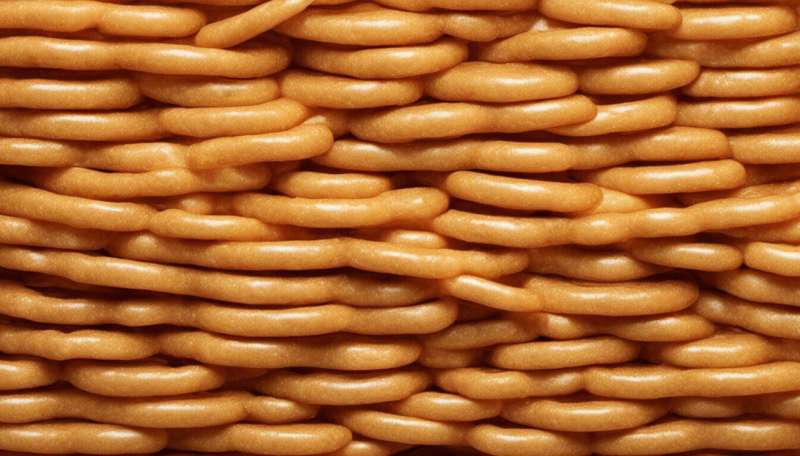Advertisers should limit temptations to indulge in high-calorie products, researchers say

When you push your trolley along the supermarket aisles, your choices are influenced by the wealth of options you find there, from juicy pears and healthy courgettes to aisles full of unhealthy crisps, chocolate, cocktail nuts and cookies. Recent research shows that people with morbid obesity shopping in the same supermarket are much more influenced by the high-calorie foods on offer than by healthy alternatives. This applies not only to the sight of high-calorie food itself, but also to illustrations that are suggestive of fast food or snacks, such as brand logos. Poppy Watson, Sanne de Wit (Innovational Research Incentives Scheme Vidi) and colleagues publish their research findings this week in the journal Frontiers in Psychology—Eating Behavior.
People with morbid obesity seem to be more vulnerable to environmental influences than people of a healthy weight. Sanne de Wit: 'The environment affects our choice behaviour in relation to food, which is not surprising. But in healthy adults in our study, this effect was the same for high-calorie and low-calorie food. In contrast, we found that people with morbid obesity are particularly influenced in their choices by high-calorie cues. Their behaviour therefore seems particularly susceptible to the influence of the "obesogenic environment", i.e. the fattening foods around them. This also applies to stimuli that are indirectly associated with these foods, such as a McDonald's logo.'
De Wit and colleagues used a computer task to study an associative learning mechanism showing the effect on choice behaviour of 'Pavlovian stimuli' associated with food (both low-calorie and high-calorie). The researchers compared the performance of 19 severely obese people awaiting stomach reduction surgery with that of 19 subjects of healthy weight, with a similar age, education and gender profile. During the computer task, subjects could earn points for healthy and unhealthy food while being exposed to photos of food and Pavlovian stimuli that were previously associated with the food.
'Wrong' food choice
De Wit's research has provided the first evidence of the importance of clinical relevance of such an associative learning mechanism. The researchers will attempt to replicate these findings in follow-up studies, but will also try to exert influence by making healthy cues more prominent.
Sanne de Wit: 'When shown photos of crisps and chocolate, the morbidly obese subjects showed a much stronger tendency to "work hard" to obtain these than when shown photos of vegetables. In people of normal weight there was no noticeable difference. There is therefore a strong likelihood that obese people in the supermarket will make the "wrong" food choice more often than consumers with a healthy weight. In our everyday environment, with all its adverts and temptations to indulge in "unhealthy" food in particular, most people will experience difficulties in purchasing healthy food. But this negative environmental effect seems to be even stronger in obese people. Our research therefore supports initiatives to limit advertising for unhealthy products and to structure the environment in such a way that it helps rather than hinders people in sticking to healthy intentions.'
'When I go off to lunch, I'll take an apple'
In her Vidi project, Sanne de Wit investigates whether we can set our brains to autopilot to ensure that desired behaviours are carried out automatically. 'By formulating specific "if-then" scenarios, we can help our brains acquire good habits: for example, "when I go off to lunch, I'll take an apple." But how does this work exactly? What are the underlying psychological and neural processes? And why does this strategy not work equally well for everyone? That's what I'm curious to find out.'
In an earlier study, De Wit used the same research approach to show that choice behaviour in adolescents is also more susceptible to high-calorie stimuli than to low-calorie stimuli. 'We therefore suspect that this associative mechanism can lead to unhealthy choices in most people, but that adults are often able to resist. However, our recent study suggests that this is less the case in people with extreme obesity.'



















